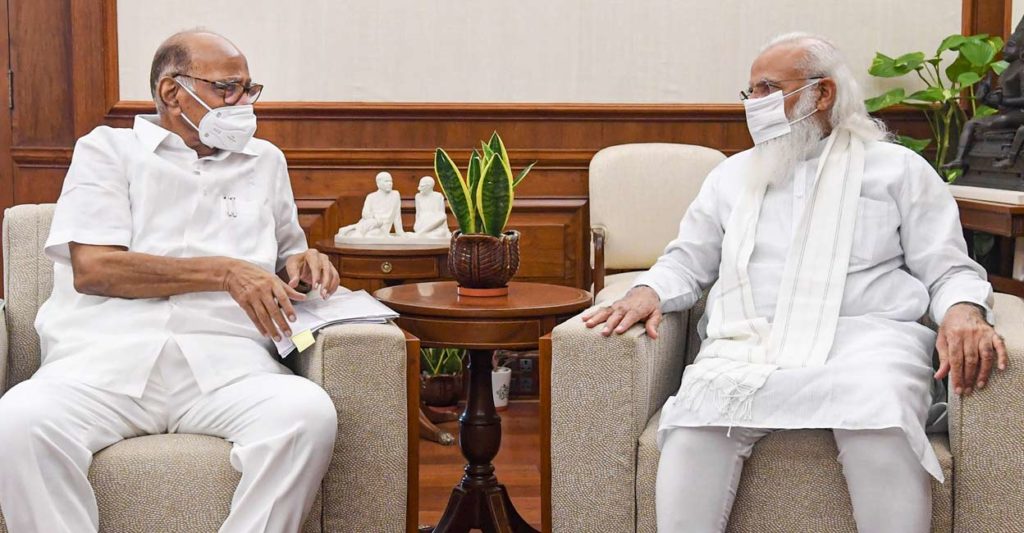NCP Supremo Sharad Pawar had an hour long meeting with the Prime Minister at his residence on Friday, in which Pawar discussed co-operative in general and Banking Regulation Amendment Act 2020 in particular.
Among other things, Pawar impressed on the Prime Minister that the amendment is in conflict with the 97th CAA. He stressed that matters pertaining to ‘incorporation, regulation and winding up’ in addition to matters relating to ‘Banking’, which are exclusive domain for State Legislation.
Pawar also wrote a letter to Modi detailing his points of disagreement. He also quoted the judgment of a Constitution Bench of the Hon’ble Supreme Court of India in Pandurang Ganapati Chaugule v. Vishwasrao Patil Murgud Sahakari Bank Ltd.’
“The Supreme Court had observed that The Co-operative banks run by the Co-operative Societies registered under State Legislation w.r.t. the aspects of incorporation, regulation and winding up’, in particular, w.r.t. the matters which are outside the purview of Entry 45 of List I of the Seventh Schedule of the Constitution of India, are governed by the said legislation relatable to Entry 32 of List II of the Seventh Schedule of the Constitution of India”, says Pawar.
“I also would like to point out here another recent judgment of a Constitution Bench of the Supreme Court, wherein it is held that recovery of debt was an essential facet of banking and therefore it is within the purview of Parliament to enable co-operative banks to recover debt under the SARFAESI Act”, writes Pawar.
The judgment noted that a co-operative bank’s entire operation and activity of banking are governed by the BR Act. As banking in pith and substance is covered under entry 45. incidental trenching upon a subject reserved for states (entry 32) is permissible. It added that on matters of ‘incorporation, regulation and winding up’ which are unrelated to entry 45 of the Union List, co-operative banks will be governed by state legislation.
NCP leader also said that the Banking Amendment is in conflict with Provisions of State Co-operative Societies Act. “The powers bestowed on the Reserve Bank to deal with matters pertaining to issuance & refund of share capital, appointment or disqualification of Directors, constitution of Board of Management, appointment of CEO, audit obligations etc. can be construed as excessive regulation. The Amended Act overrules various provisions of the Co-operative Act in regard to the formation of the Board and election of Chairman, appointment of Managing Director etc. by holding a caveat in terms of such appointments”, he said.
On BoM issue Pawar says “ RBI insisted all UCB’s to form Board of Management before 30th June, 2021. However post B.R.Act amendment, the provisions of section 10-A(2) are made applicable to UCBs, where the eligibility criteria for Board of Directors and expected criteria for Board of Management are almost same. Therefore mandating the constitution of BOM and creating two power centres in Co-operative Banks by the Reserve Bank by issuing circular is now irrelevant.”
Pawar’s letter touches upon many other issues such as Appointment of Auditors, Terms of Board of Directors, Removal of CEO and Supersession of Board.
The letter can be accessed by clicking the following link:
